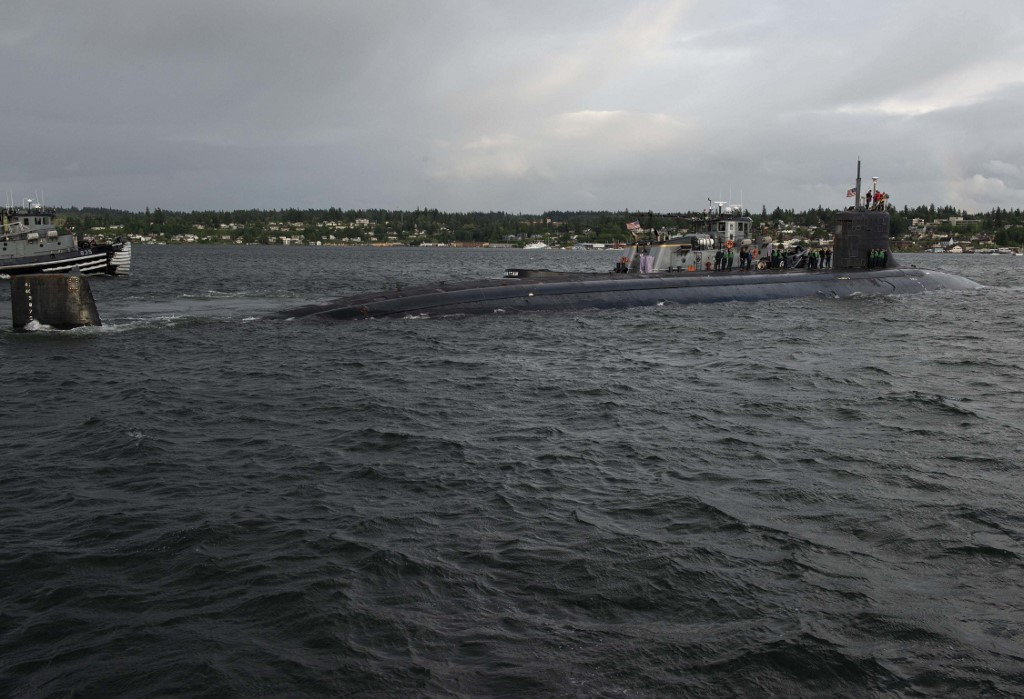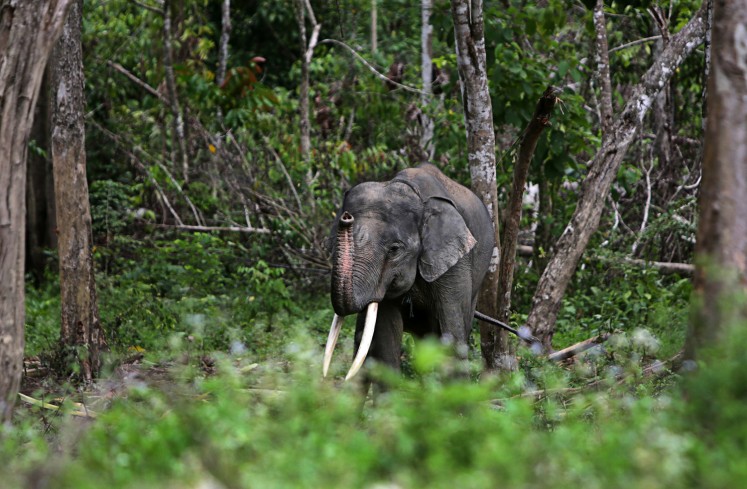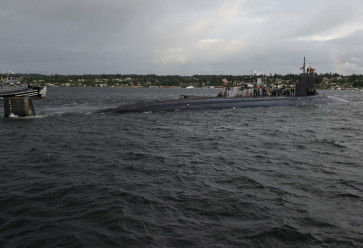Popular Reads
Top Results
Can't find what you're looking for?
View all search resultsPopular Reads
Top Results
Can't find what you're looking for?
View all search resultsHas the South China Sea become a nuclear playground?
Stronger policy instruments are needed to protect the environment in and around the Indo-Pacific region.
Change text size
Gift Premium Articles
to Anyone
The 2021 announcement of AUKUS shocked many Southeast Asian countries, China and even France.
The trilateral security pact between Australia, the United Kingdom and the United States aims to establish legal order and counterbalance China’s hegemony in the Indo-Pacific. The pact also demonstrated Washington and London’s confidence in providing Canberra with access to nuclear-powered submarines.
Some ASEAN countries have expressed their concern about a possible arms race in the region.
Australia will have access to build and operate the next generation of Collins-class submarines that will adopt Virginia-class or Astute-class submarine technology, according to The Strategist, but run on enriched uranium that only need to refuel after 20-30 years. Enriched uranium, however, can be turned into a nuclear weapon.
ASEAN has been divided in its response to AUKUS. Singapore, the Philippines and Vietnam seem to have warmly welcomed the security pact, saying it could balance and maintain maritime security and stability in the disputed South China Sea (SCS). Meanwhile, Indonesia and Malaysia have expressed concern about the access and presence of Australia's nuclear submarines in the region, which they say will escalate tensions in the SCS and could even lead to nuclear war.
China has also strongly condemned the formation of AUKUS in a joint statement with Russia and warned of instability and a threat to peace in the Indo-Pacific. On the other hand, China has apparently taken a similar course (Bulletin of the Atomic Scientists) by moving its Jin-class nuclear submarines from a naval base in Qingdao to one in Longposan, Hainan, which faces the SCS and Southeast Asia.
The stationing of Jin-class submarines has put the area equally at risk, considering that they fall under the category of ballistic missile submarines (SSBNs).



















